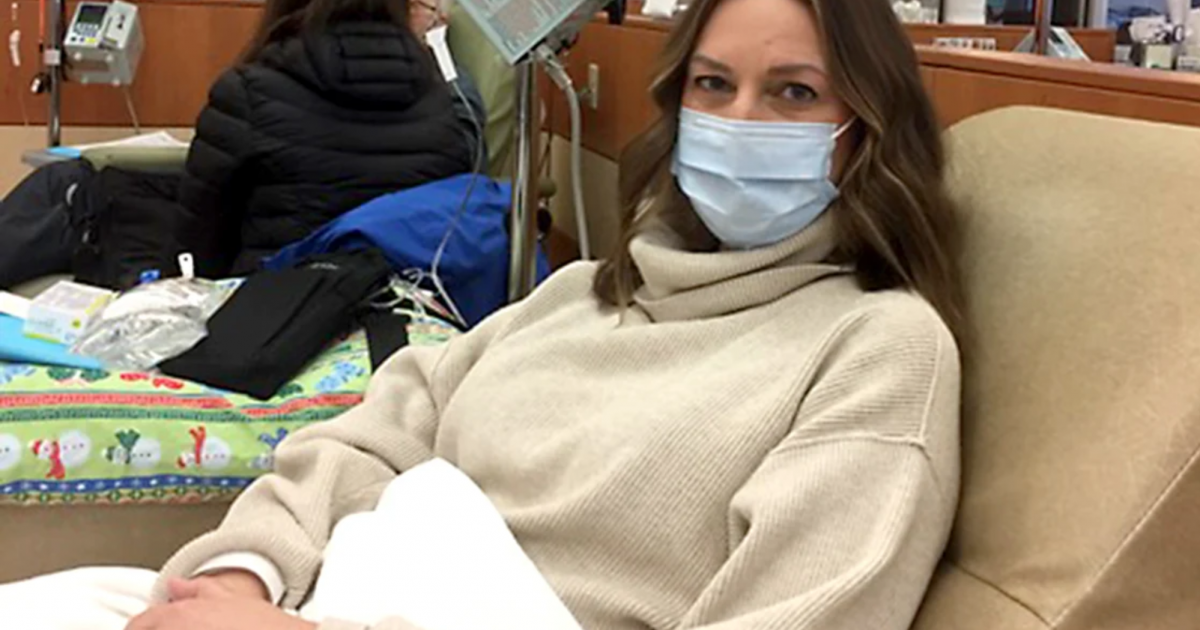Michelle Miller, 53, never knew much about her biological family, but she did know one important piece of information: her biological mother had breast cancer at a young age.
Armed with this knowledge, Miller began getting mammograms earlyat 30-years-old. In 2019, her vigilance paid off. Miller was diagnosed with breast cancer, but she caught the disease at stage 1A. The earlier breast cancer is detected, the more treatable it tends to be.
Read MoreTragically, she was right. Two years later, in April 2021, she started experiencing stomach problems. "I would eat a meal and feel so fulllike Thanksgiving Day-full after eating half of what I would normally eat," she said. "That progressed to this steady constant pain in my middle upper abdomen, right at my stomach."
Besides the lack of screening methods, one of the challenging parts of diagnosing pancreatic cancer is that it is easy to dismiss symptoms as indicative of less serious issues. But because Miller knew her risk, she wanted to take action quickly. "People think it's stress or indigestion," Miller said. "You have to really listen to your body. I didn't let those stomach symptoms go on for too long."
This time, it paid to have already had cancer. Miller was already working with an oncologist for her breast cancer, and she was able to schedule a CT scan quickly. "I think a lot of primary care doctors maybe wouldn't have moved so quickly to that CT scan," she said. The results of her scan were mixed. Miller had stage 1B pancreatic cancer, meaning that the cancer was contained within her pancreas. Breast and pancreatic cancer are both cancers that can be fought most effectively with early detection.
Miller knew she was lucky that her cancer had not spread to other organs, but, "Still, it was devastating," she said. "I would wake up every morning and my nightmare would start, rather than you go to sleep and have a nightmare. That's how it felt."
Miller never let her fear shake her determination to fight the disease with everything she had. When she learned that she was a candidate for the Whipple procedure (in which a tumor is surgically removed from the pancreas) she knew that the operation would be complicated and carry some risk, but she jumped at the opportunity. "If pancreatic cancer can be cured, really the only path is to be able to have that surgery," she explained.
After going through eight rounds of chemo over a span of four months, Miller was ready for the procedure. "I had a really good outcome," she said. "I was only in the hospital for four days afterwards. I healed well."
Miller had to go through four more rounds of chemo after her operation, but apart from dietary restrictions, she has been able to gradually return to normal life. Next month, she plans to go back to working at her insurance company.
If you have been diagnosed with a BRCA mutation, there are still steps you can take to lower your risk of developing a cancer.
Battling cancer was scary for Miller personally, but she also had to think about her children. Miller has three daughters, all of whom are at higher risk for cancer because of their mother's history with the disease. Miller said, "One of them has undergone genetic testing and she's positive for the BRCA2 mutation as well." Her second daughter is currently going through this testing.
Miller knows that it can be terrifying to learn that you have a mutation, but she insists that genetic testing can be important for understanding your risk and maintaining vigilance. "Knowledge is power," she said, "And for anyone who has a family history of the cancers that are aligned to the BRCAs, it's smart to think about genetic testing." If you better understand your risk, "You can start to take back a little bit of control."
What is BRCA2?
BRCA2 is one of two mutations of the BRCA gene: BRCA1 and BRCA2. These genetic mutations have been linked to an increased risk of multiple types of cancer, but they are best known for increasing the risk of breast and ovarian cancer in women. It is estimated that about 72% of women who inherit a BRCA1 mutation and about 69% of women who inherit a BRCA2 mutation will develop breast cancer by the age of 80. Roughly 44% of women who inherit a harmful BRCA1 mutation and about 17% of women who inherit a harmful BRCA2 mutation will develop ovarian cancer by the age of 80.
It is important to note that the gene mutations aren't exclusive to women. They can increase the risk of prostate cancer and breast cancer in men, and breast and pancreatic cancer and stomach cancer in both men and women.
Why Does a BRCA Mutation Increase Cancer Risk?
In a previous interview, Dr. Rebecca Arend, Associate Scientist at the University of Alabama, Birmingham, explained how these mutations affect risk: "What a BRCA mutation is, is a defect in your ability to repair a double-strand break (in your DNA)." This means that cells have a tougher time repairing their DNA as they are supposed to. When cells repair their DNA the wrong way, when cancer, such as breast and pancreatic cancer, is more likely to develop.
Who Can Have a BRCA Mutation?
The BRCA mutations (which are passed on from a father or a mother), can cause a variety of cancers. If one of your first degree relatives carries a BRCA gene mutation, there is a 50-50 chance you're carrying it, too. And because BRCA mutations aren't tied to the X or Y sex chromosome, that blood relative does not need to be a woman. You're just as likely to inherit the risks of cancers associated with BRCA from your father as you are from your mother.
Learn more about SurvivorNet's rigorous medical review process.

